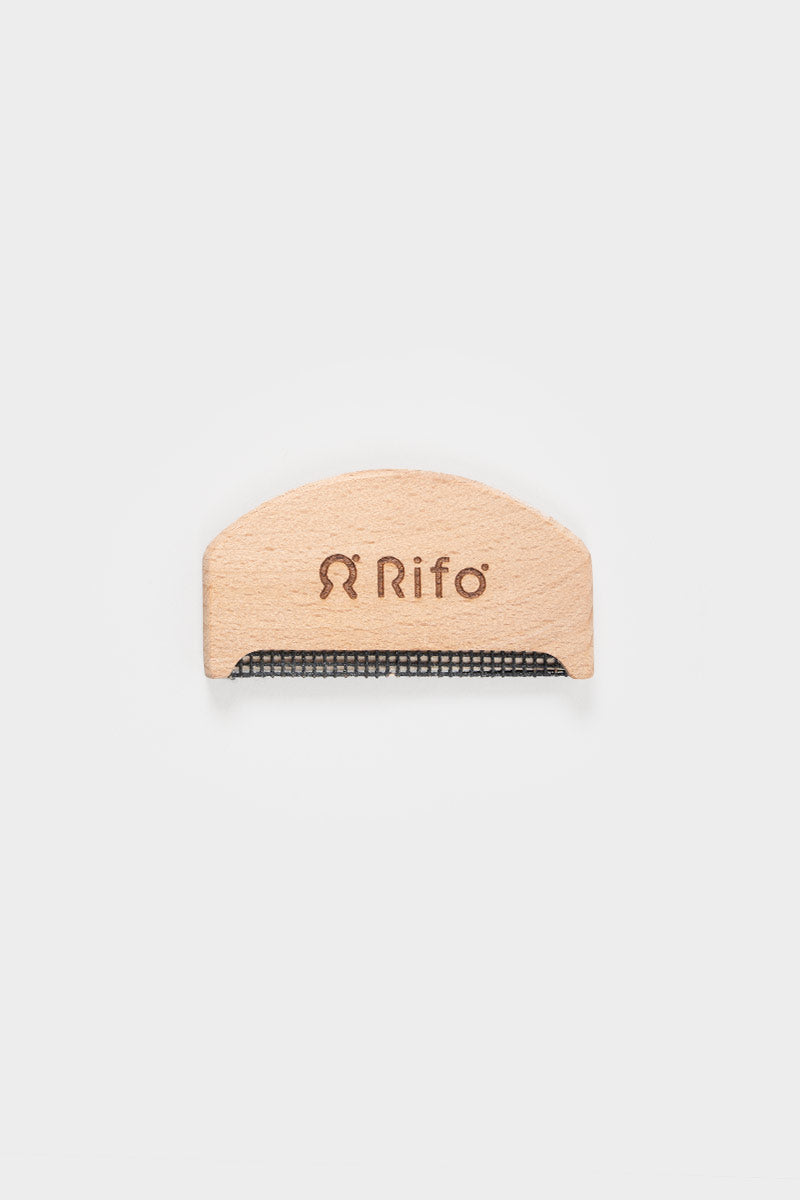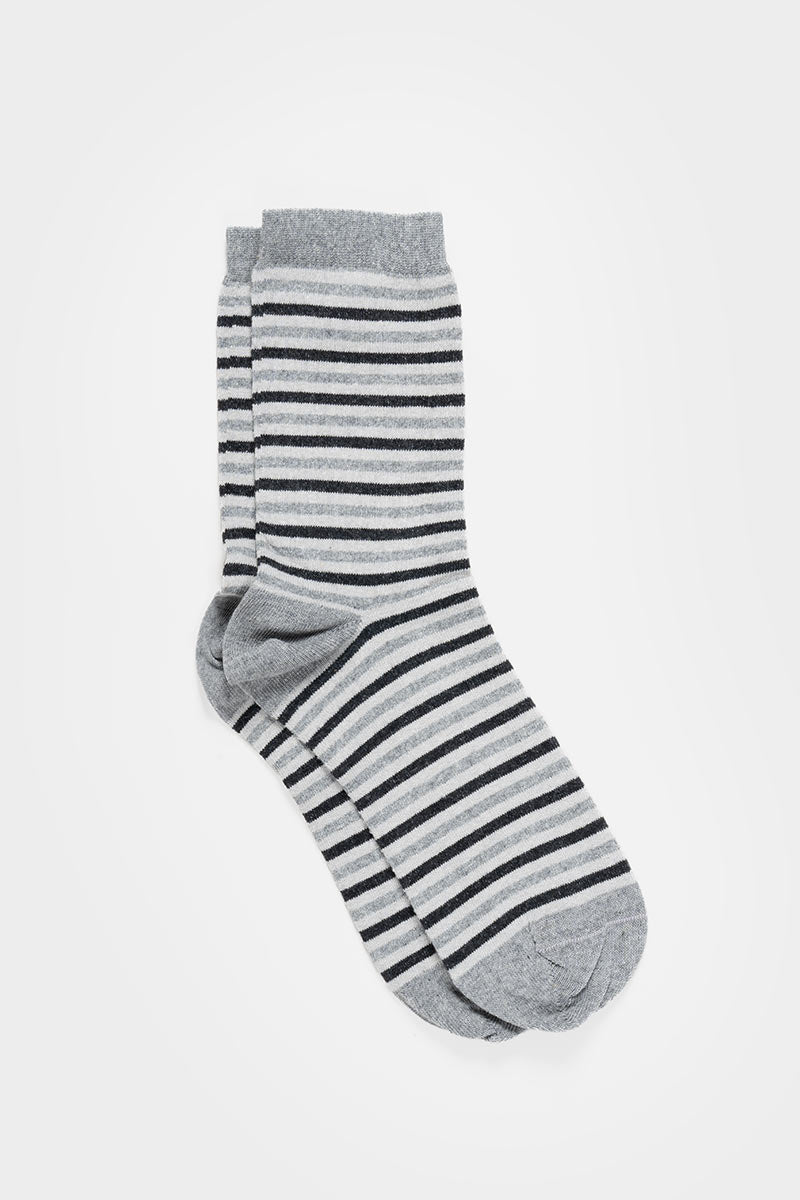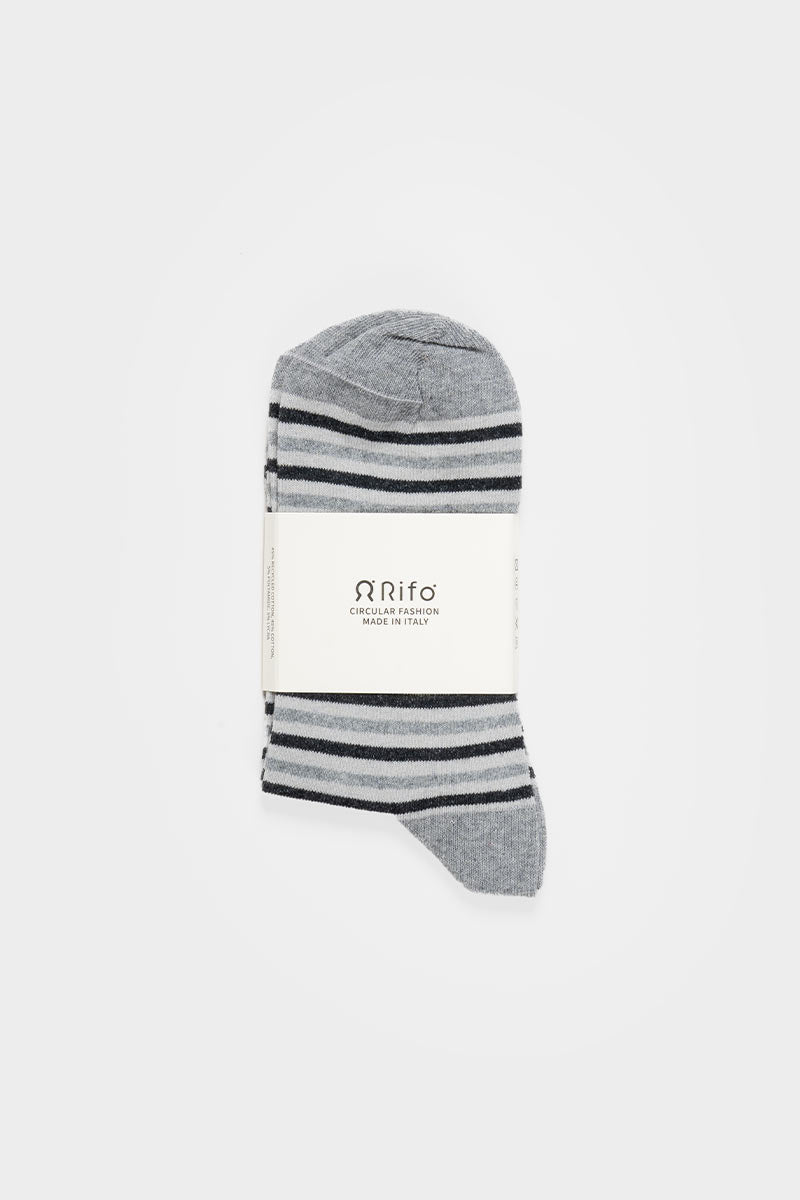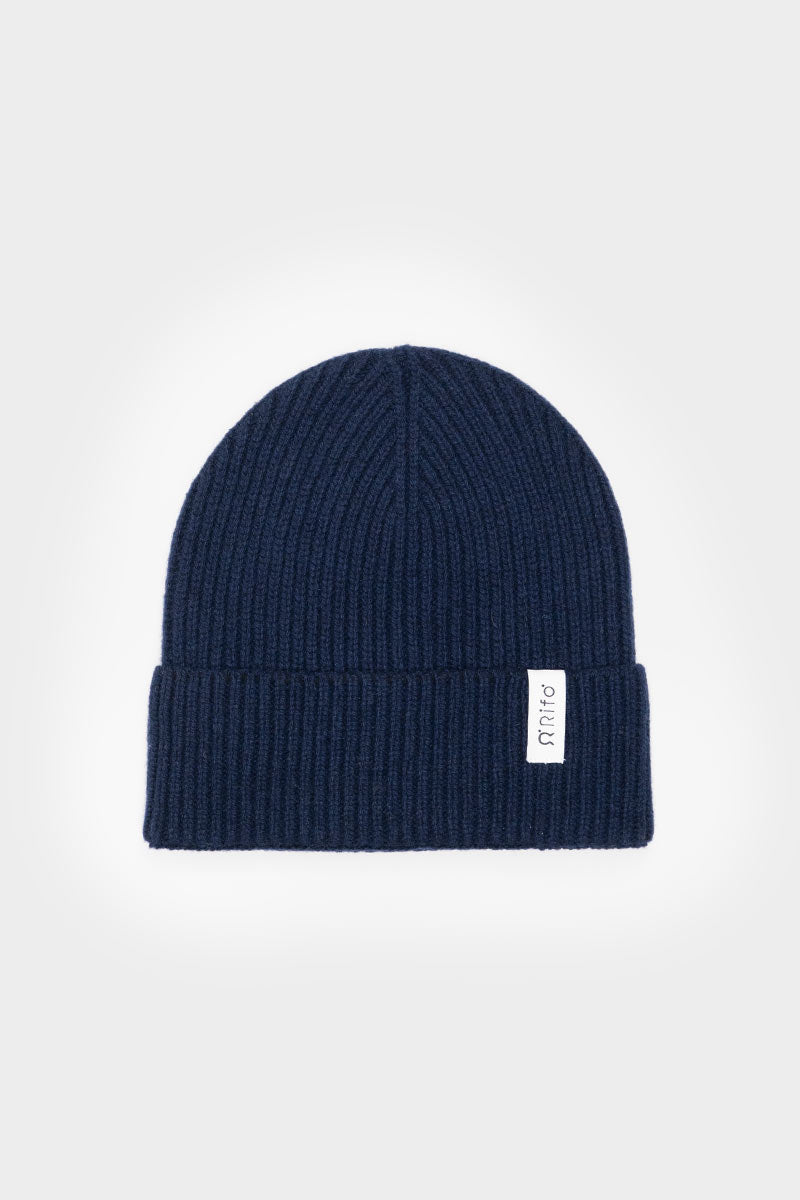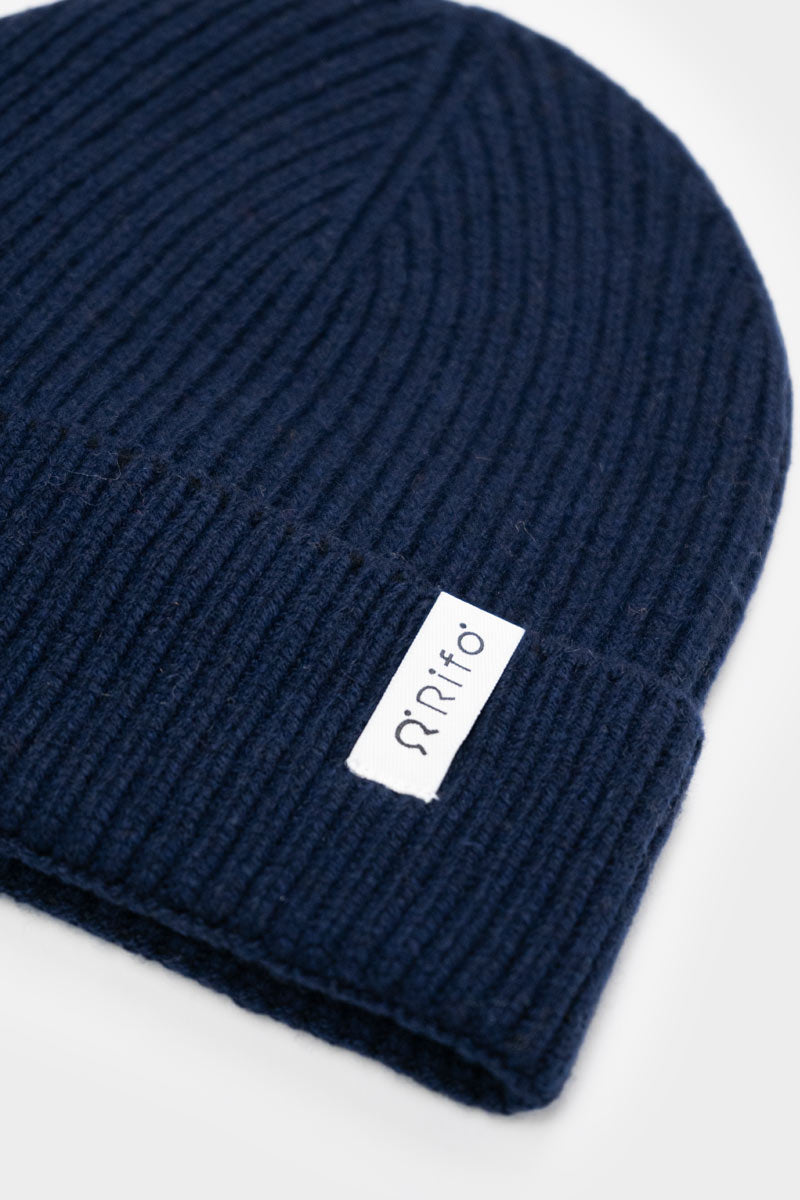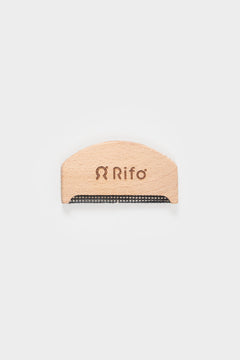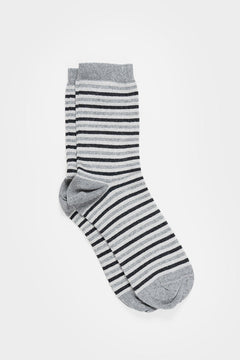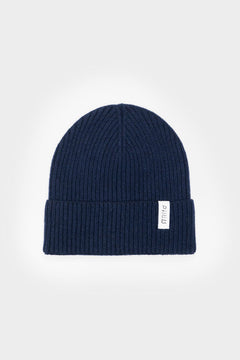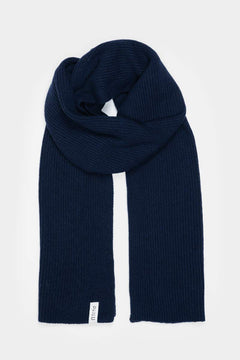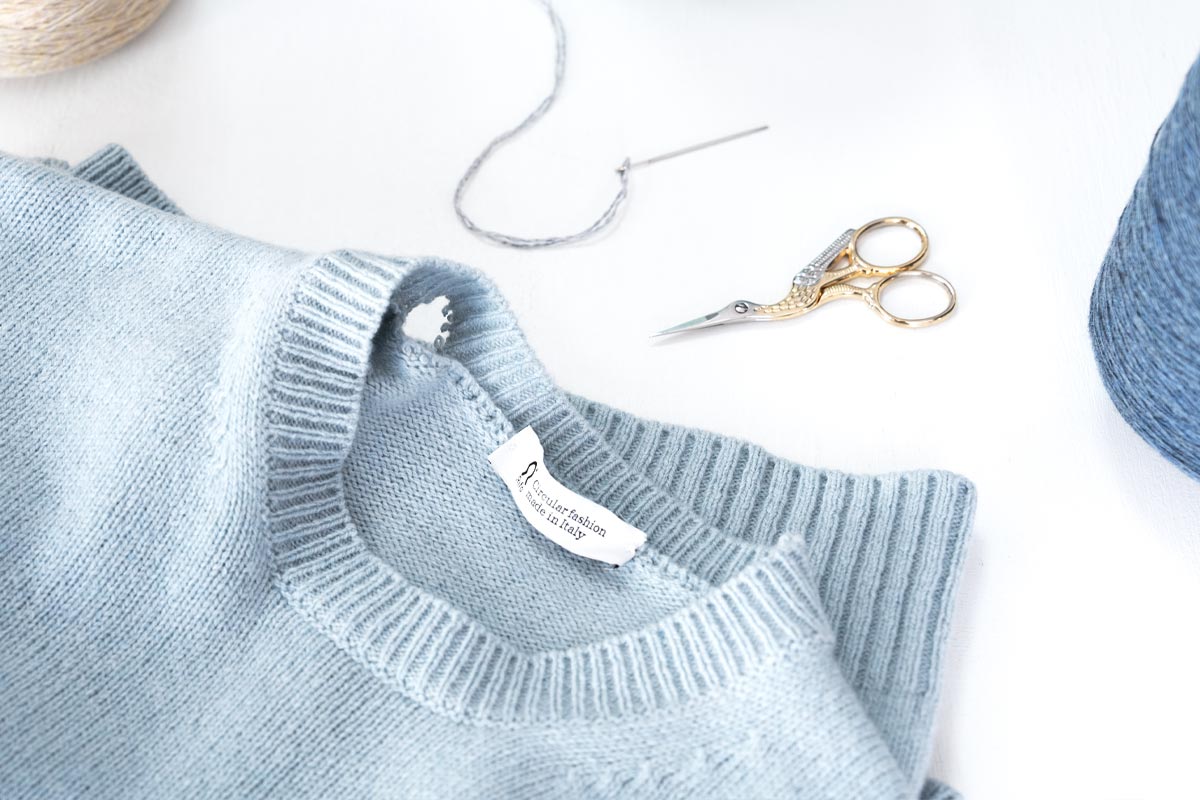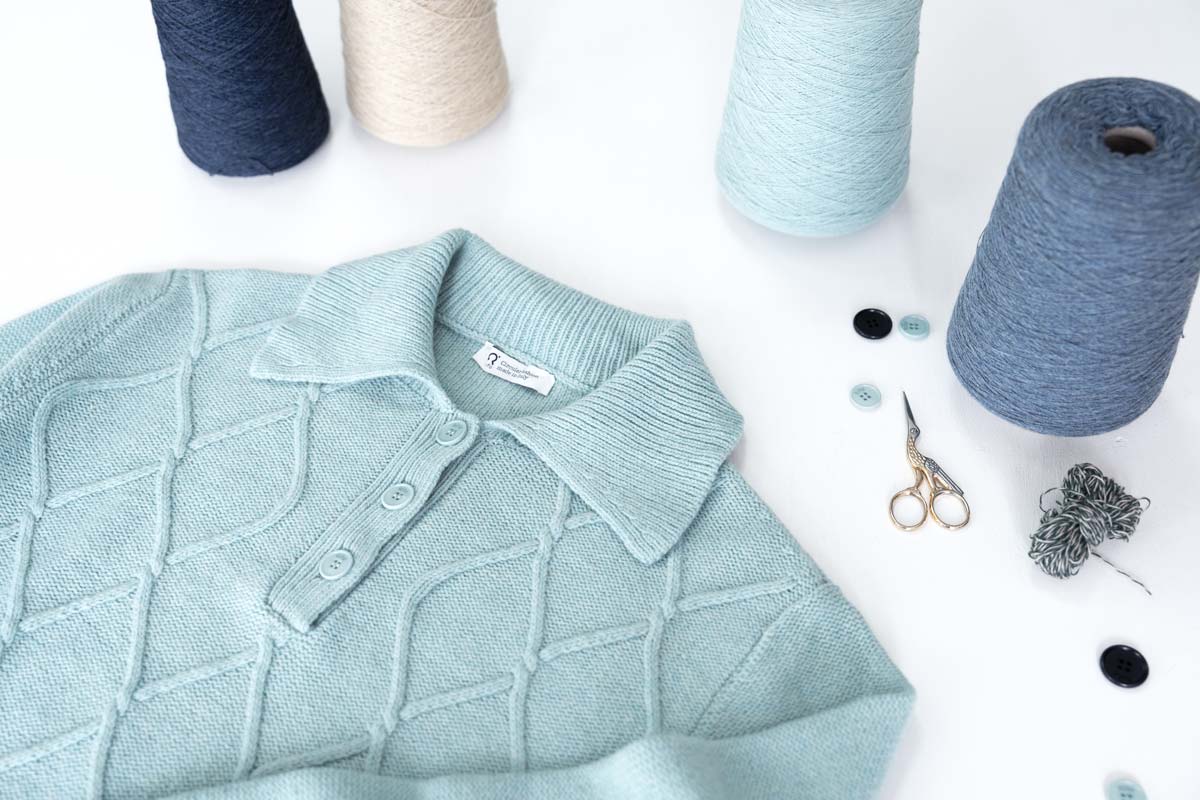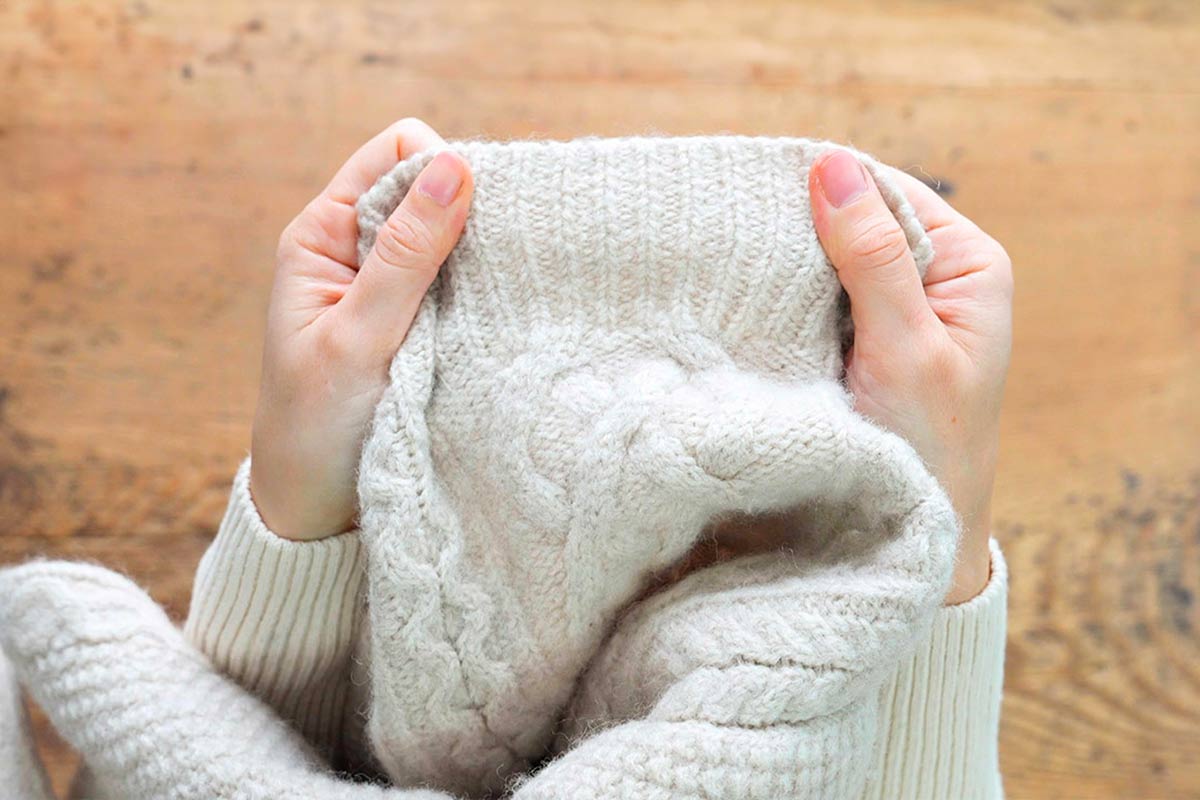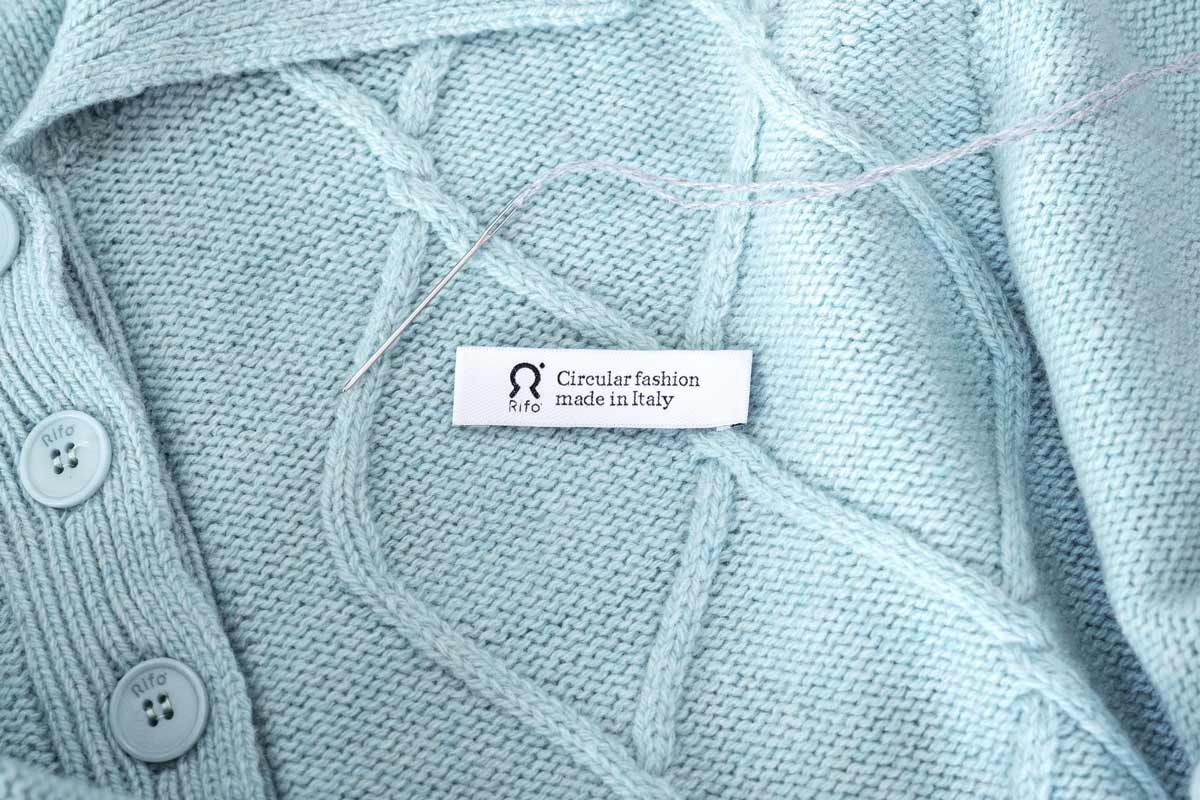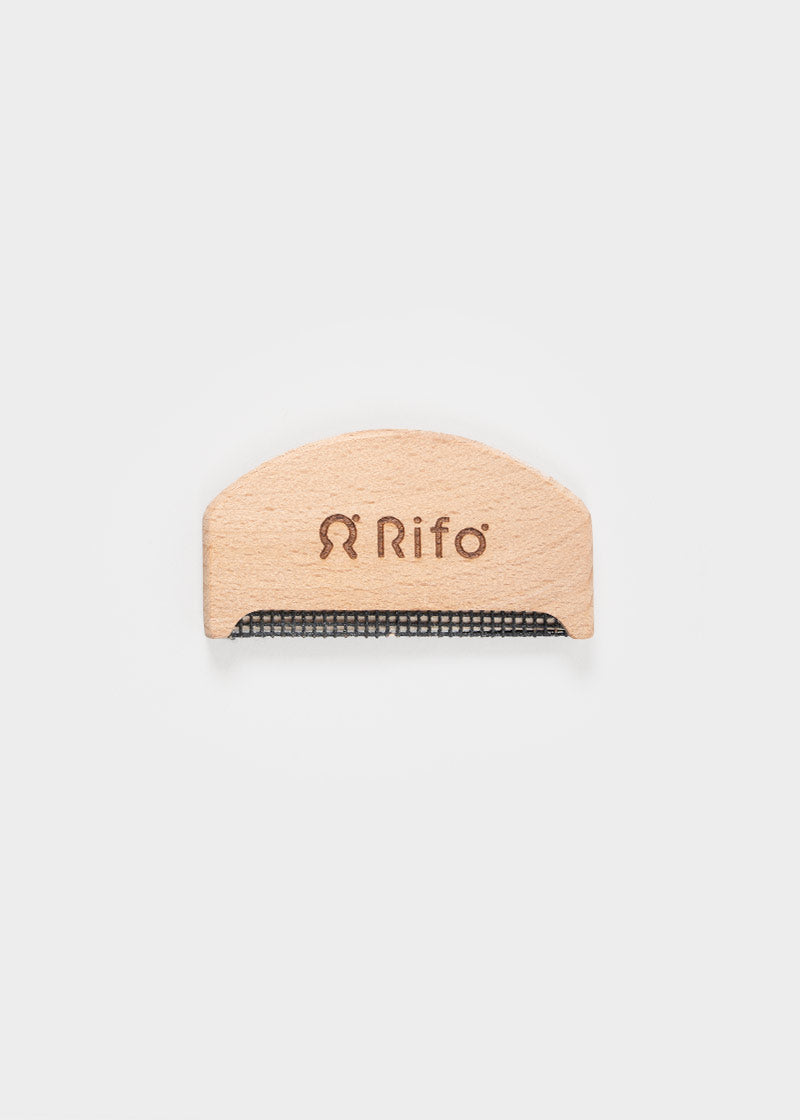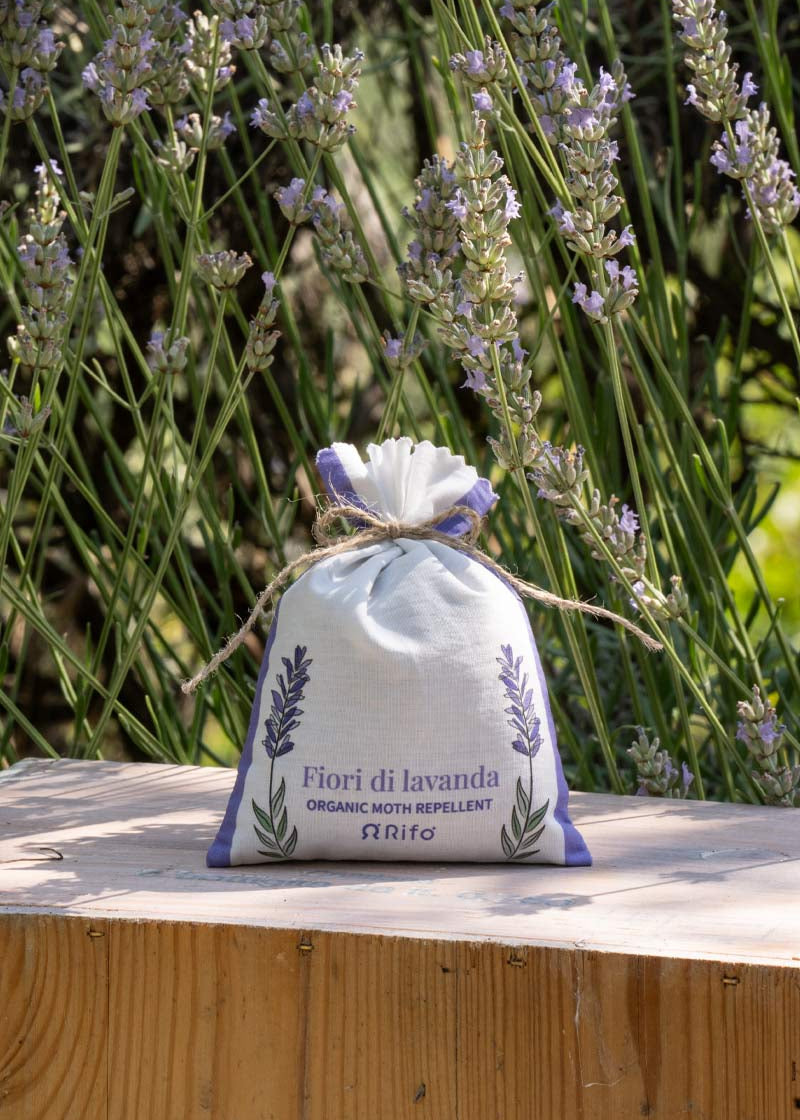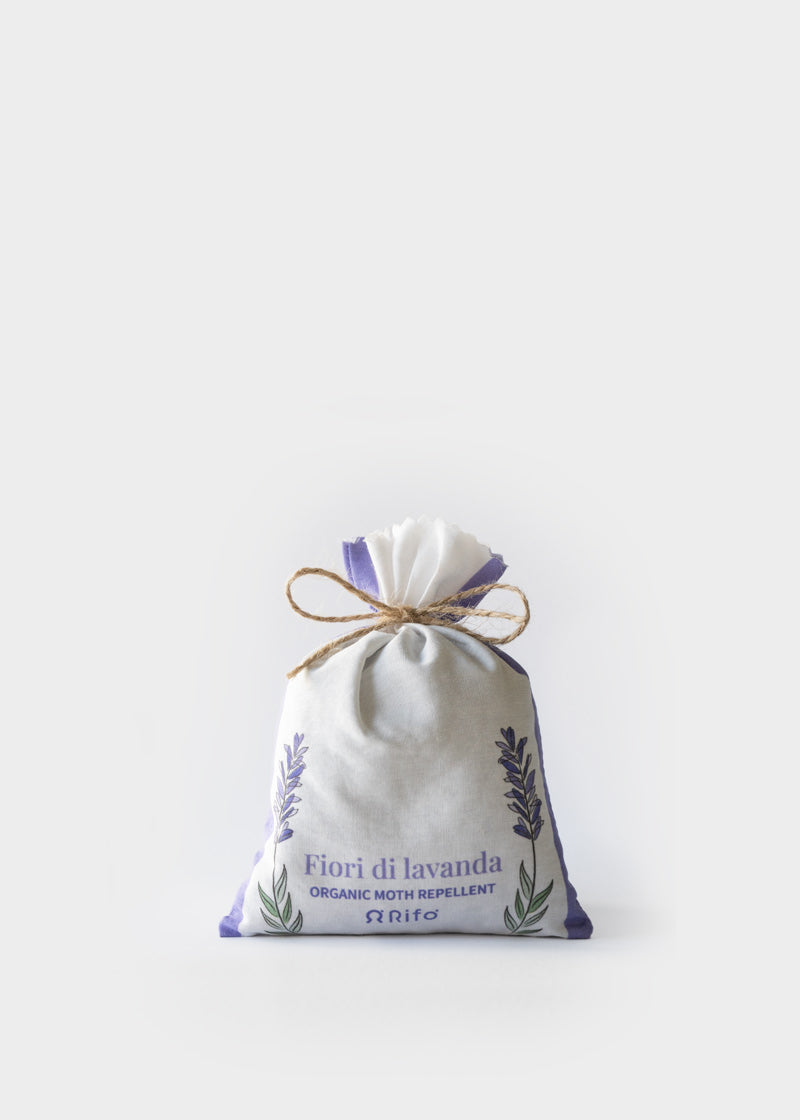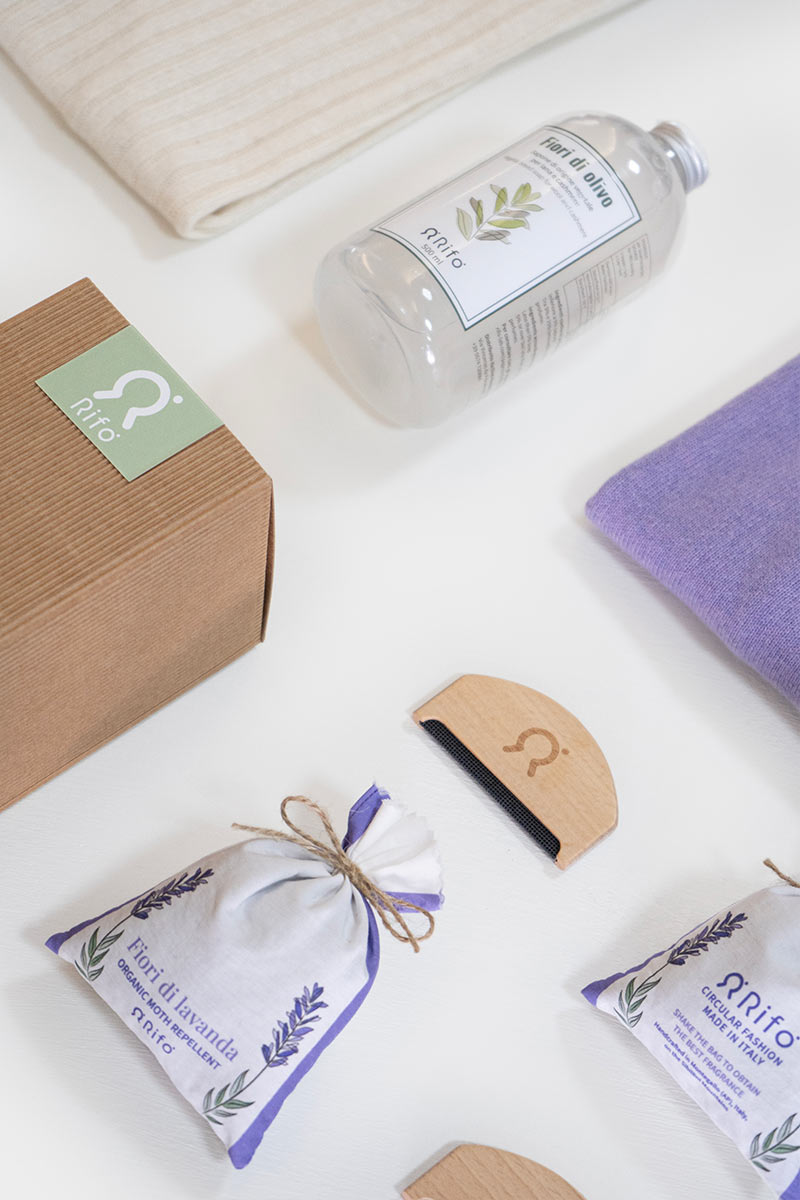
Washing and garment care
Sustainable fashion is not limited to the choice of eco-friendly garments, but also embraces a conscious approach to the consumption and care of one's clothes.
Our practical tips
Each material has its own care
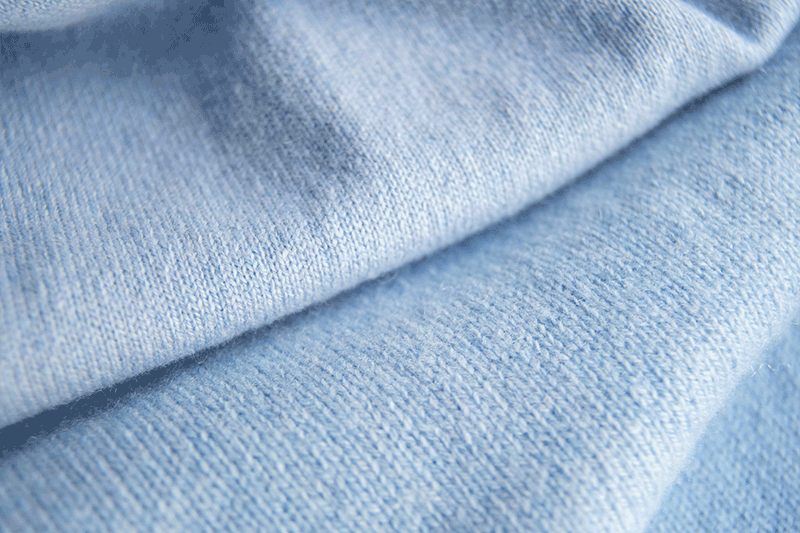
Recycled Cashmere and Wool
WASHING
We recommend washing our cashmere or wool accessories and clothing by hand with a delicate detergent, to avoid surprises due to drying or washing errors. Alternatively you can also choose a washing machine program for delicates, maximum at 30°.
DRYING
Dry the cashmere or wool garment naturally, always laying it flat on a horizontal surface. Having the water drained is very important to prevent the lower part of the garment from deforming.
You can do a gentle spin or adopt grandma's method:
- Take a towel and place the damp shirt on top, even when folded;
- Fold the towel over and apply pressure with your hands to release excess water;
- Remember not to wring, otherwise you risk twisting and breaking the fibers.
IRONING
You can iron wool and recycled cashmere items, when necessary, with steam. You can use a steamer or the steam from your iron. When you do this, always be careful not to stand too close to the garment, you could risk getting it wet and therefore felting it.
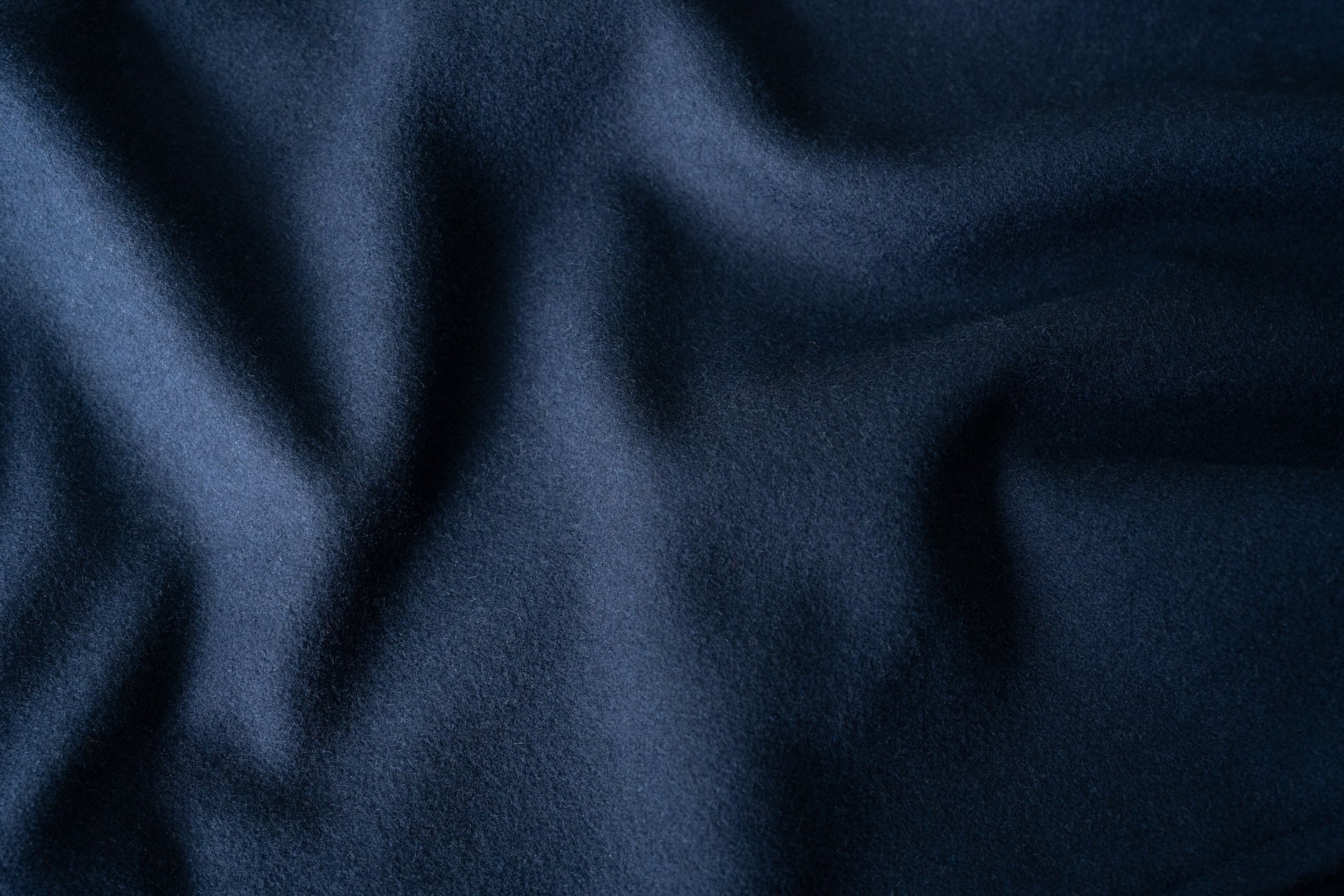
Recycled Wool Cloth
WASHING
To wash our coats and accessories in recycled wool cloth we recommend dry cleaning, preferably in a professional laundry.
DRYING
Dry garments made with recycled wool cloth in a natural way and avoid the dryer, which could damage the surface of the fabric.
IRONING
You can iron the recycled wool cloth using steam or an iron. In this case, place a contrasting fabric or sheet to avoid direct heat sources which could affect the percentage of recycled polyamide.
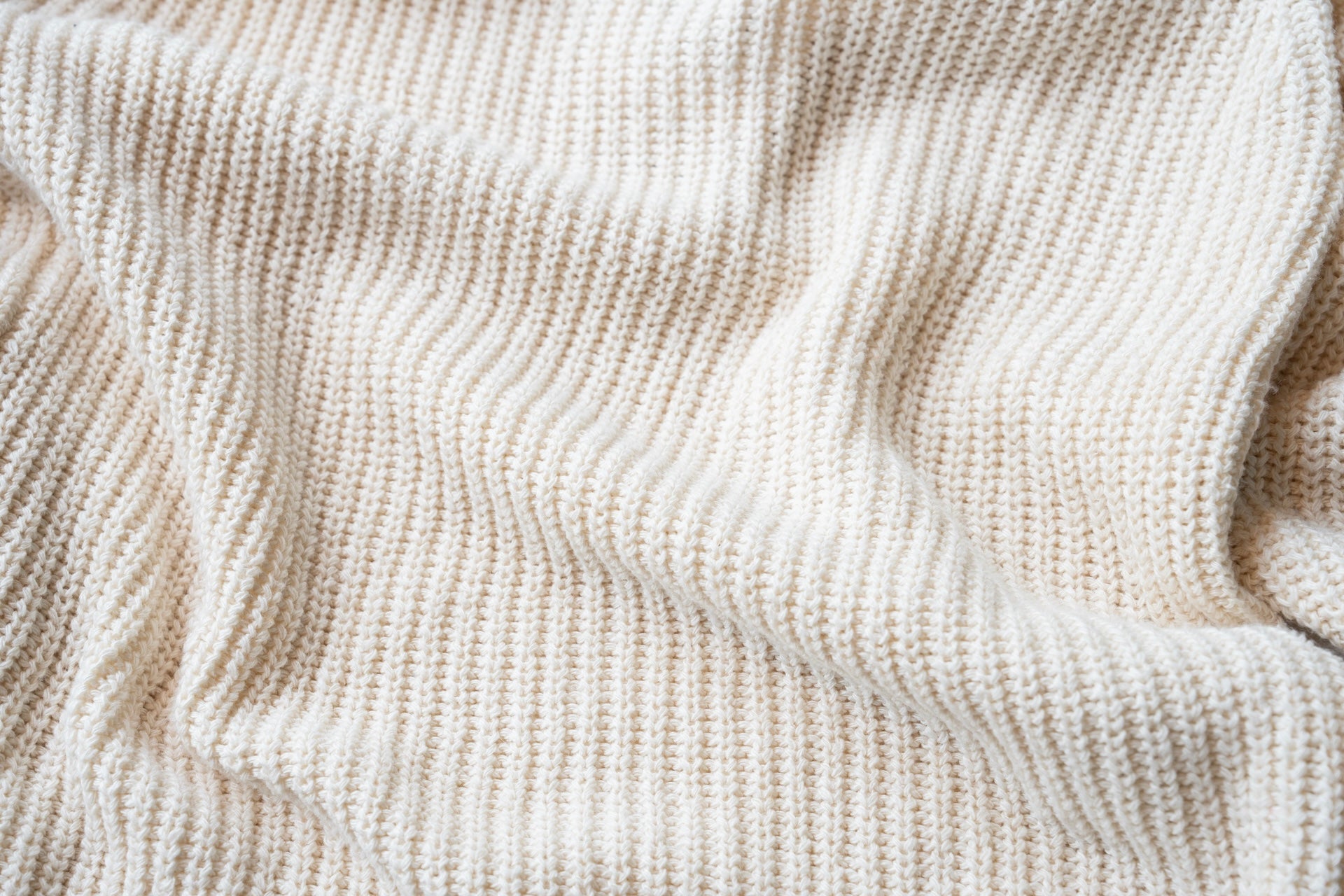
Recycled Silk
WASHING
We recommend washing the delicate fibers of recycled silk garments only by hand to avoid shrinkage and best maintain their quality. Massage delicately in a basin with soap and water and for an optimal result use a delicate cleanser such as our Fiori di Ulivo.
DRYING
Dry the recycled silk garment naturally, always laying it flat on a horizontal surface. Removing excess water is very important to prevent the lower part of the garment from deforming:
1. Take a towel and place the damp shirt on top, even when folded;
2. Fold the towel over and apply pressure with your hands to release excess water;
3. Remember not to wring, otherwise you risk twisting and breaking the fibers.
IRONING
If necessary, we recommend ironing recycled silk items with steam. You can use a steamer or the steam from your iron.
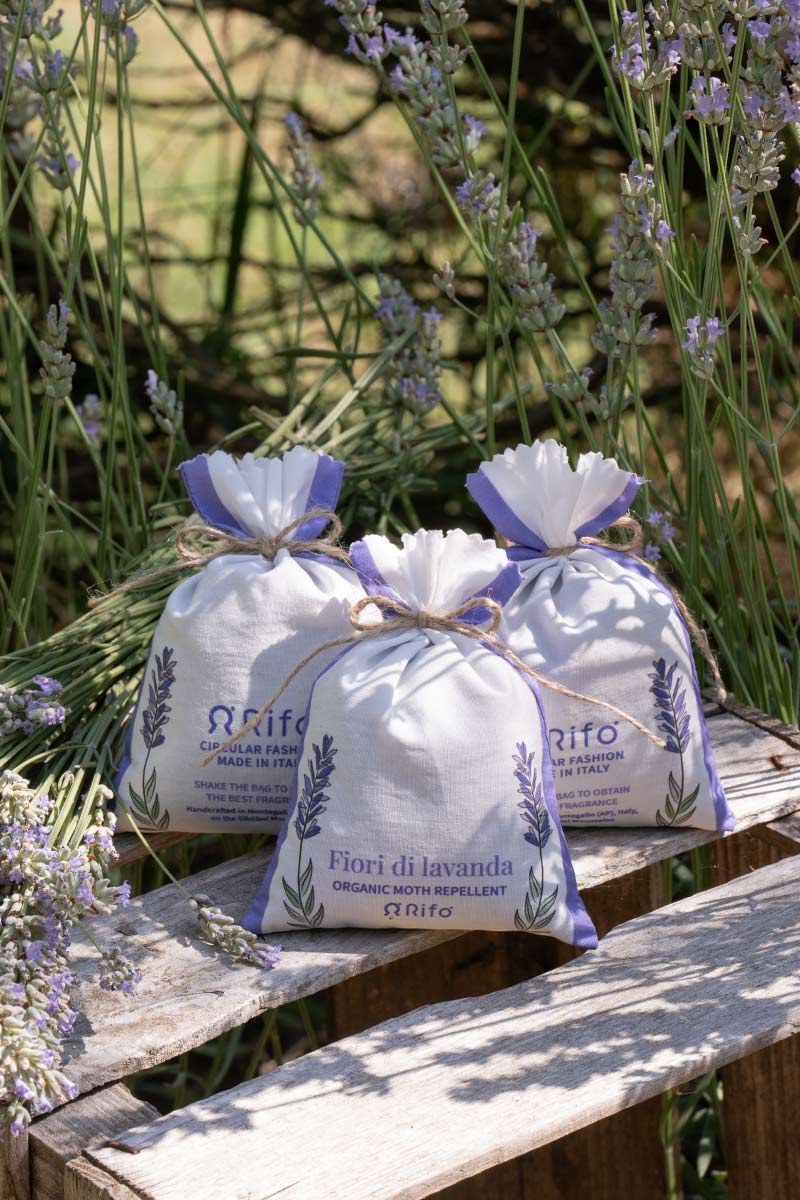
Organic Lavander Moth Repellent
Animal fibers, being composed of keratin, are prone to moth attacks. With our Lavender Moth Repellent, you can protect your wool, cashmere, and silk garments during seasonal changes.
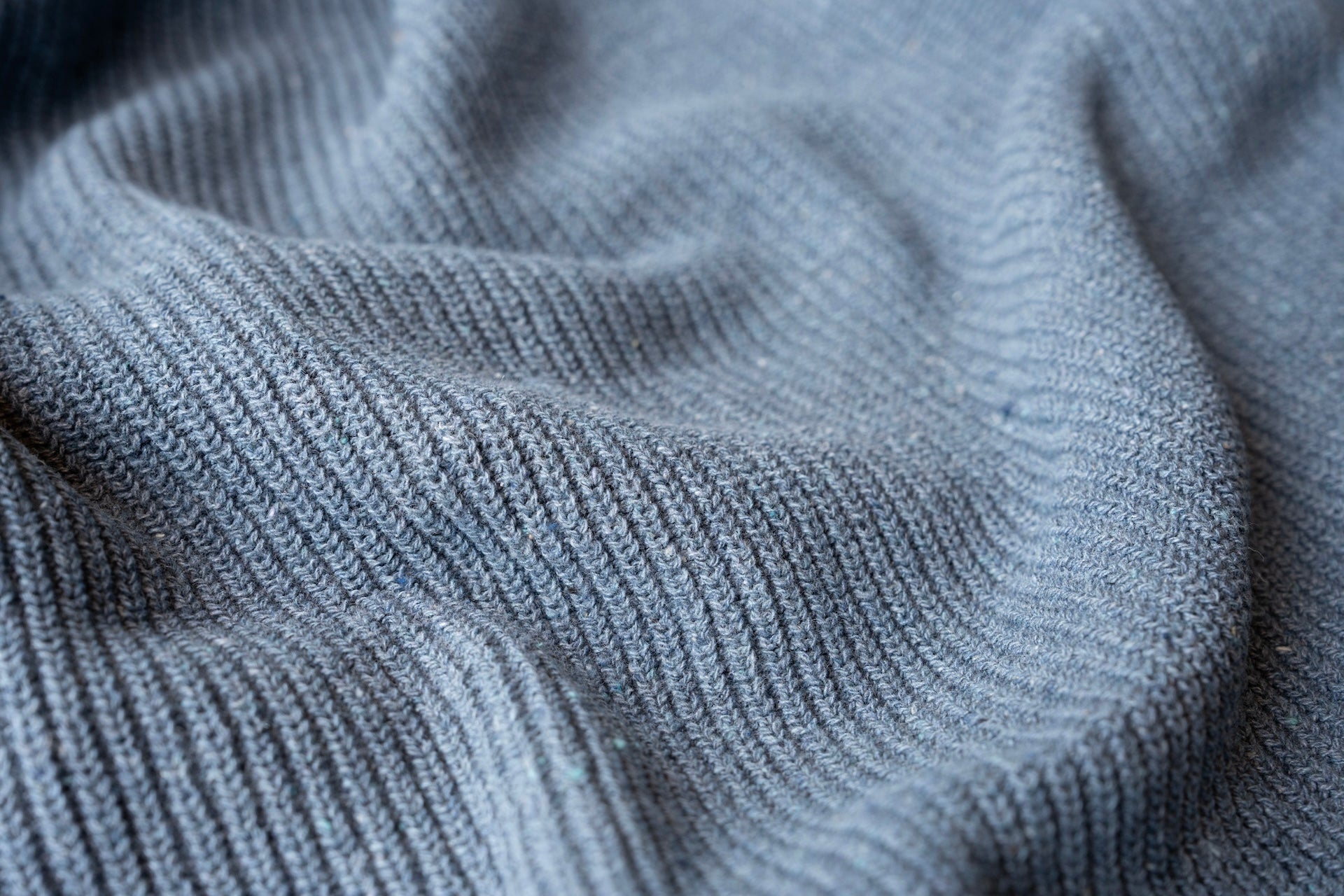
Recycled Denim Cotton
WASHING
The denim yarn in our knitwear behaves similarly to that of classic denim trousers. After wearing it a few times it may expand and lose grip. At that point a machine wash is what is needed to get your denim garment back into shape: opt for a normal wash at 30°. If you decide to wash by hand, then spin it lightly to drain the water.
DRYING
Spin it before hanging out your upcycled denim knitwear. Then lay out on a horizontal surface to dry, in order to avoid excessive stretching of the fibers.
IRONING
We recommend that you iron recycled denim items with steam when necessary. You can use a steamer or the steam from your iron.
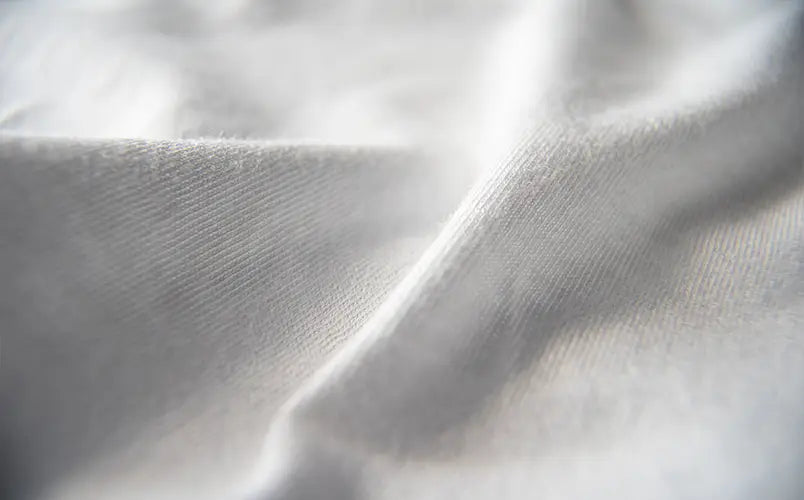
Recycled Cotton
WASHING
For all our garments containing recycled cotton, from beach towels to t-shirts, we recommend hand-washing or a gentle machine wash at 30°.
DRYING
Prefer natural drying by not exposing dark clothes to direct light. You can spin lightly before drying to speed up the drying process, avoid the tumble dryer.
IRONING
Unlike a garment containing synthetic fibers, one made of 100% cotton will most likely need ironing. To limit the use of the iron and for a quick result, iron on a horizontal surface.
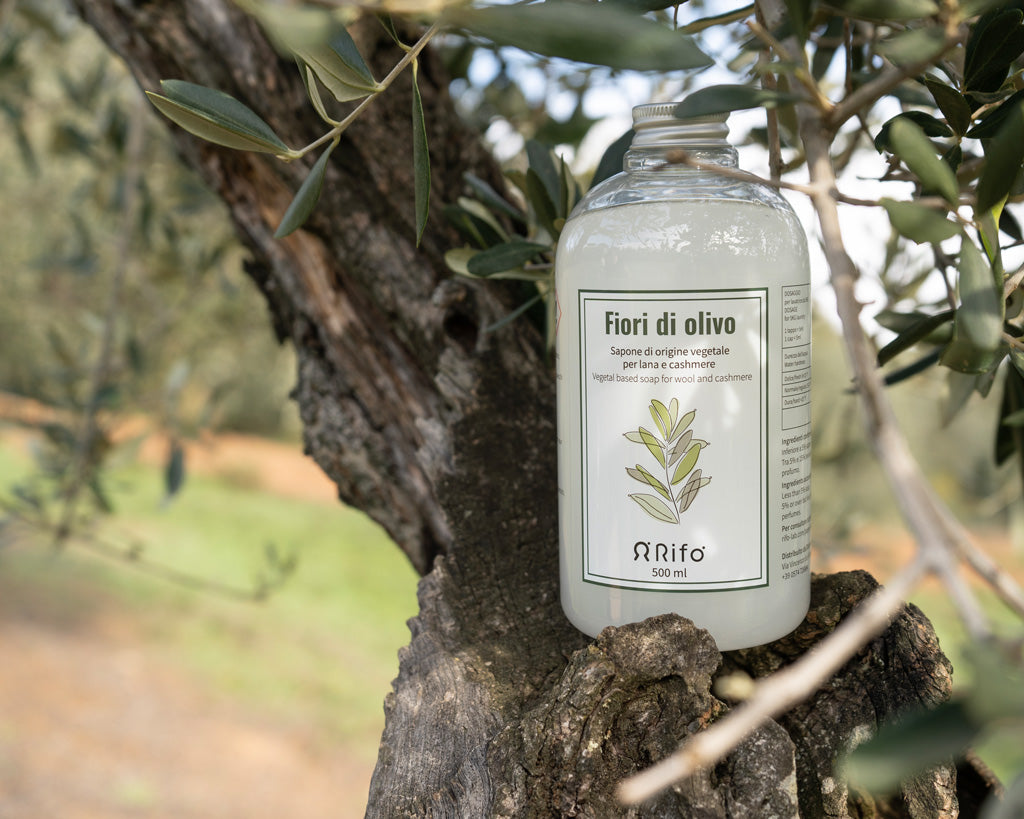
Natural Olive Detergent
Choosing a natural, biodegradable, and gentle detergent is a gesture of care towards the environment that extends the life of your clothes. Made from essential olive oils, our Fiori di Olivo detergent gently cleans recycled fibers while protecting them.
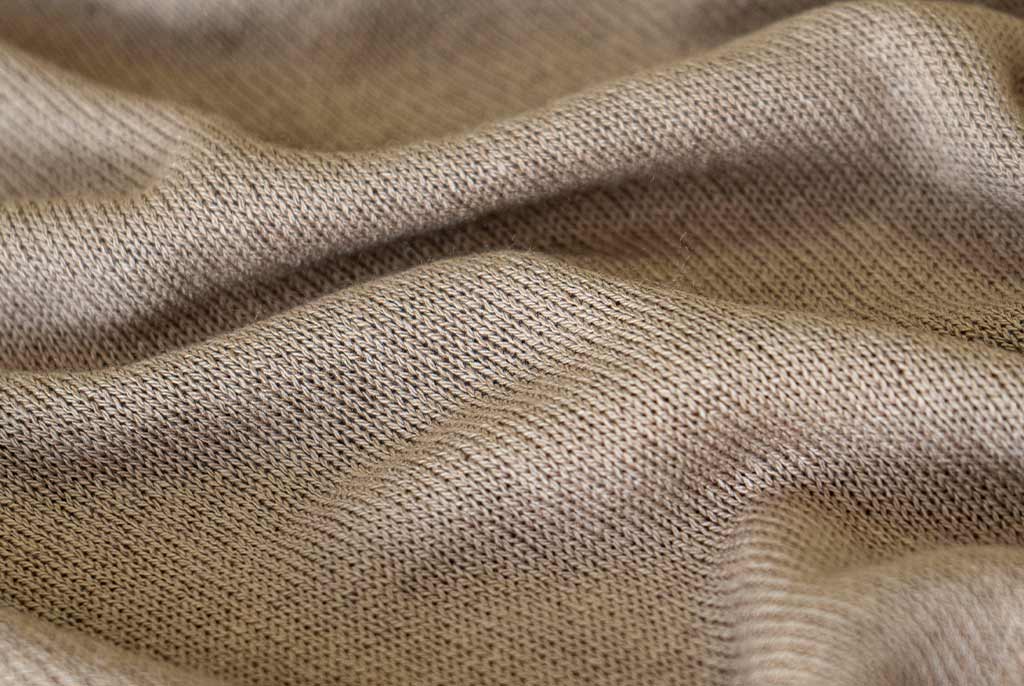
Recycled Linen
WASHING
We recommend washing recycled linen items by hand or with a delicate wash at 30° to avoid shrinkage and best maintain their quality. For a softer result you can use our delicate Fiori di Olivo soap.
DRYING
A gentle spin is recommended to remove excess water from the garment. Dry on a horizontal surface. Do not bleach.
IRONING
Linen knitwear items do not present the difficulties of easy wrinkling of woven linen items. When ironing, pay attention near the seams: it is better to steam and not apply the iron directly, as these surfaces are in fact prone to taking on an unpleasant shiny effect.
Tips for all clothes

How to prevent pilling?
- Do not stress your natural fiber garments, especially those made of wool and cashmere.
- Minimize washing by airing them out to remove odors.
- Use a gentle detergent.
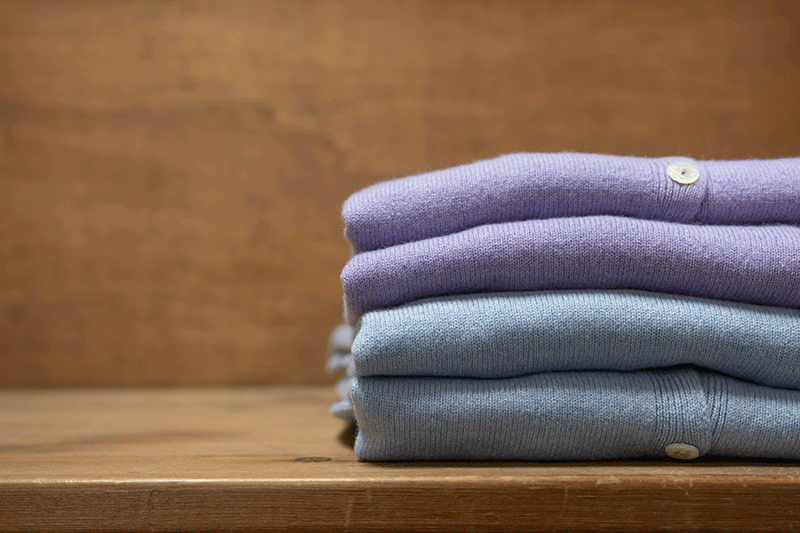
How to store knitted items?
-Whatever the material, it is best to avoid putting a knitted item on a hanger, as it could lead to stretching of the fibers and deformation of the garment.
- Fold it and store it in drawers or on shelves, so as to preserve its shape.
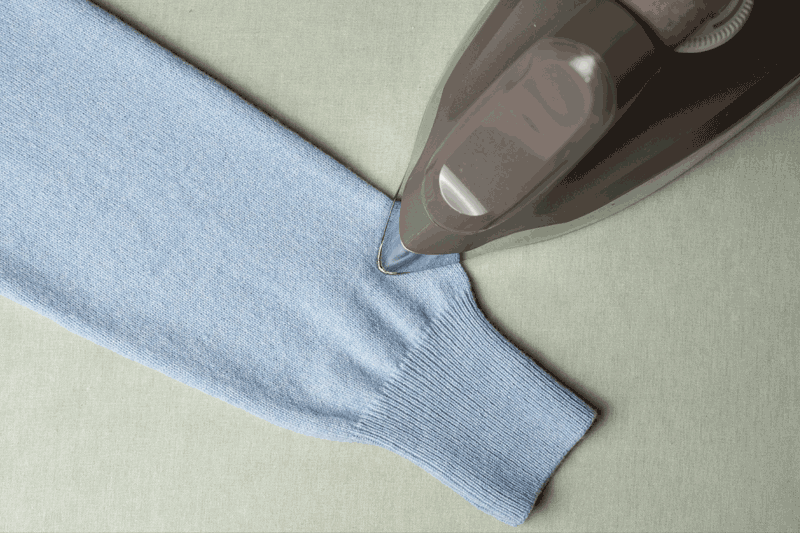
Problems with widened sleeves?
If it's knitwear, you can get the sleeves back into shape using just the steam from the iron:
- Hold the iron at a distance while passing it over the affected area.
- Press the fibers together with your hands, taking advantage of the heat and humidity.
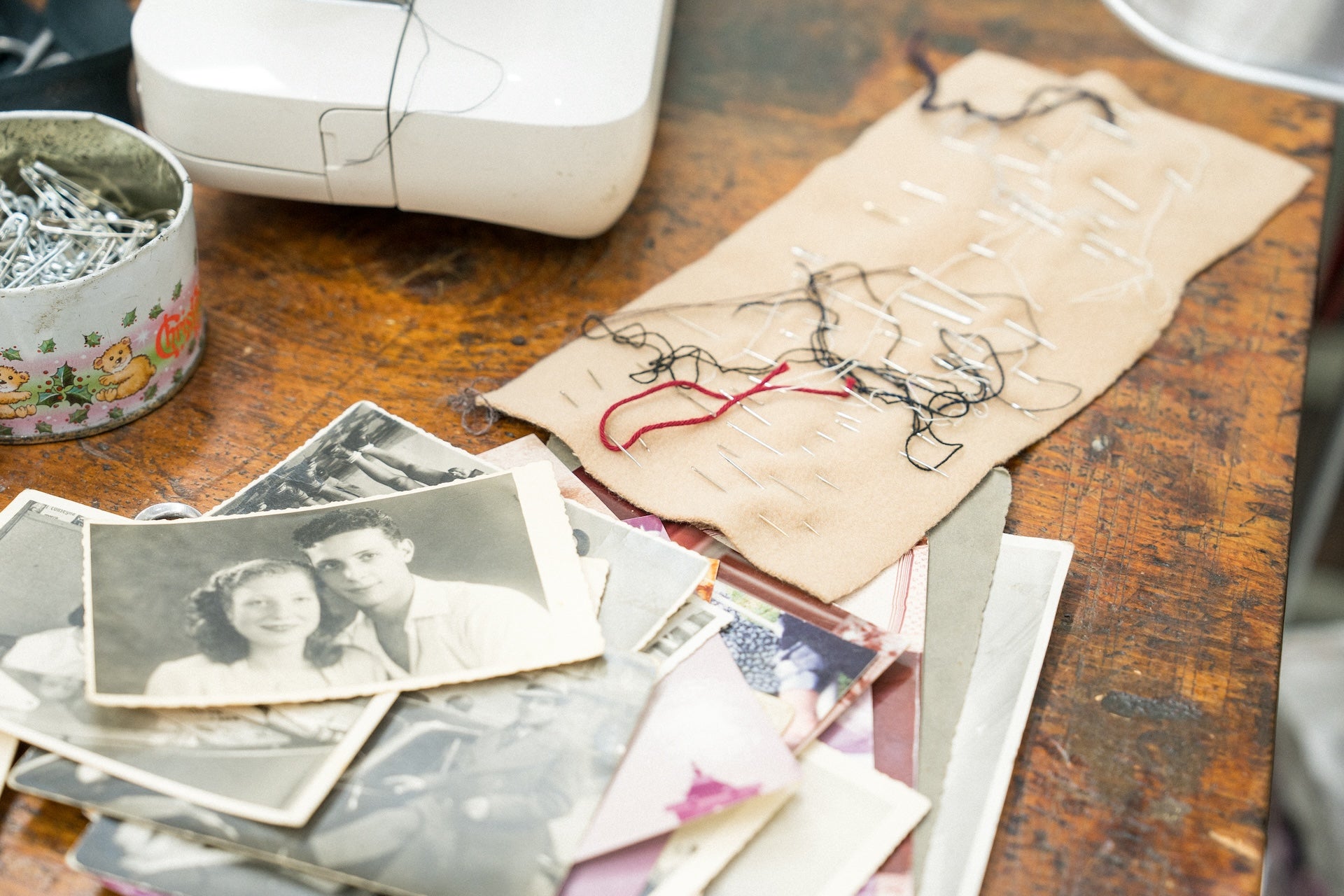
Love Lasts Warranty
All Rifò garments are handcrafted with the heart, respecting high quality standards. If you experience any packaging defects within 3 years, we will repair them and return them to you as good as new.
